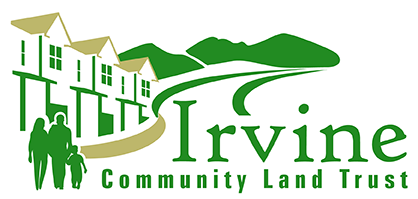New Housing in Irvine Represents Focus on Integration, Accessibility
Known as a "workforce housing neighborhood," the $18-million development was built to address Irvine's lack of affordable housing necessary to sustain its job-rich environment. In 2003, the Irvine City Council adopted an inclusionary zoning policy, requiring that 15 percent of new housing be affordably priced.
As part of a comprehensive Housing Strategy and Implementation Plan released in 2006, the council set a further goal of approximately 10,000 (or 10 percent) affordable housing units by 2030. The ICLT was created the following year to advance this goal by acquiring land and securing funding sources.
The program seeks to balance job and housing opportunities by building up integrated communities, which benefit the local ecology by reducing long commutes.
The Doria apartments are rentals priced for persons at 30 to 60 percent of the area median income, with 18 of the 60 available units specifically set aside for those at the low end of that range. The apartments are available on a first-come, first-served basis, provided that applicants fall within that income bracket and pass a background credit check. Ten of the apartments have also been set aside for residents with special needs.
According to Irvine Mayor Sukhee Kang, Doria is a "key component" of the city's efforts to create a "livable, sustainable community." Irvine has found a balance in an approach that is aggressive, but gradual and thoughtful. In addition to affordability, the mayor and city council are focusing heavily on integration. Careful planning ensures that Doria and developments like it are integrated with single-family homes and surrounded by Irvine's parks and recreation facilities.
"A mix of affordability in our housing is critical to the long-term success of our economy and our community," Mayor Kang explained.
Irvine's housing plan includes programs for land acquisition and negotiations with developers, obtaining funding sources to leverage city funds and a variety of programs, such as the ICLT, to implement the city's housing goals and priorities. The city of Irvine is already very familiar with the community land trust leased-land model, because the University of California Irvine has been using land leases to protect affordability of faculty/staff housing on its campus for some time.
Since Irvine is already well served by existing affordable housing developers such as Jamboree, the ICLT need not serve as a developer, and is instead entrusted with acquiring land and housing units with a focus on long-term affordability and stewardship.
According to ICLT president Mary Ann Gaido, the trust already has plans for a second phase at Doria, which will result in an additional 74 apartment homes. These apartments will be contiguous to the existing Doria units, and the two will share common facilities.
Mayor Kang emphasized the important role of "public/private partnerships" in helping Irvine meet its affordable housing goals. He maintains that such collaboration is critical to Irvine's present affordable housing success: The city's current 4,000 units represent the greatest ratio of affordable housing units in Orange County.
"This project moves forward our long-term commitment to provide a full spectrum of housing," the mayor said.
"We're excited that Doria is the first rental development for the ICLT," said Laura Archuleta, president of Jamboree. Archuleta indicated the financial structure for Doria as a prime example of creative financing in funding workforce housing.
A variety of local funding sources were engaged, including the City of Irvine and the Irvine Redevelopment Agency. Combined with the ICLT, these entities provide $2 million in loans. Other financial partners include the County of Orange, the Orange County Health Care Agency, The Irvine Company and U.S. Bank.
The Irvine Company donated the three-acre site on which Doria was built as part its agreement with the city to provide affordable housing in Northern Irvine. Doria is an integrated part of the Company's Stonegate Master Plan, and its Spanish Colonial-style architectural design blends seamlessly with the aesthetic of the community.
Doria's 60 apartment homes are located in two- and three-story garden-style buildings arranged around a central courtyard. The front walkway features pavers engraved with the names of Jamboree supporters.
These pavers, which were sold during Jamboree's 20th anniversary year in 2010, are intended as a visual legacy of the importance of affordable housing. Doria's first 60 residents will also have the opportunity to add their names to the walkway.
Located near the community center and oriented for optimal sunshine is Doria's community garden, which gives residents access to their own plot on a first-come, first-served basis, emphasizing healthy living with the opportunity to grow food, flowers and plants. The 3,000-square-foot community center features both large and small meeting spaces, management offices, a kitchen, computer lab and children's play area. The adjacent community pool is equipped with a handicap lift.
The Doria property exceeds Title 24 energy efficiency standards by approximately 15 percent. Each apartment is outfitted with an ENERGY STAR refrigerator, dishwasher, stove and microwave, lowering energy consumption, which provides a cost-saving benefit to residents while promoting the city's sustainability goals.
The opening of Doria represents an important first for Jamboree: the launch of the company's goal of designating at least 10 percent of the homes in each new development for people with special needs.
"These are folks already living in our community and permanent supportive housing is critical to providing stability for them. Doria is the first such property," said Archuleta.
Resident services are provided onsite by Jamboree's Resident Services Group to foster learning, health and community building to enrich quality of life.
These fully funded, ongoing supportive services will enable residents with special needs to live in permanent, housing with a stable environment. CHOICES, the Orange County Healthcare Agency's Full-Service Partner, will be available 24/7 for support of daily living activities, job placement assistance and ensuring access to other supportive and independent living services.
"We're proud to integrate special needs housing here at Doria, made possible in part by the $1 million in Mental Health Services Act (MHSA) funding," said Bill Campbell, Orange County Supervisor, 3rd District, and chairman of the Board of Supervisors. Doria is the second property to incorporate such funding towards the county's goal of 185 homes.

